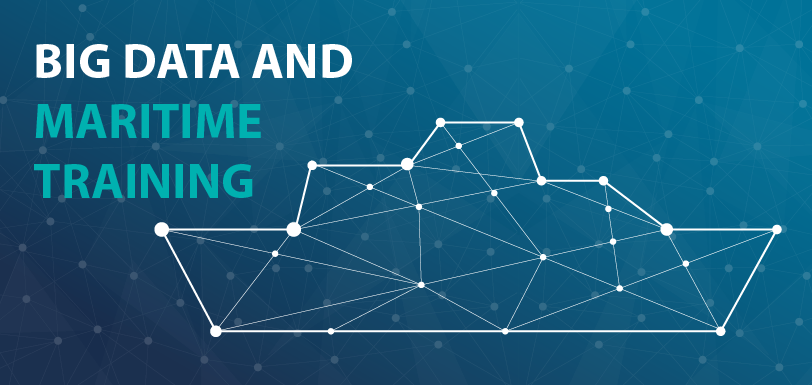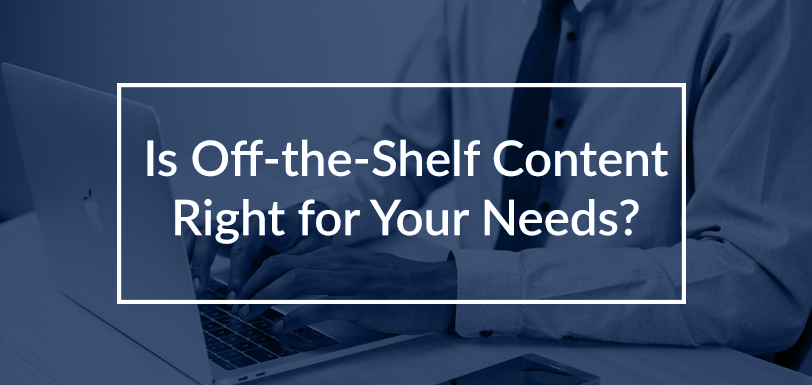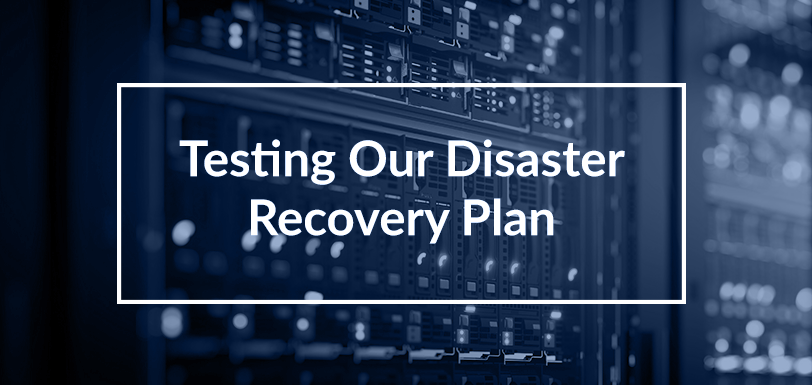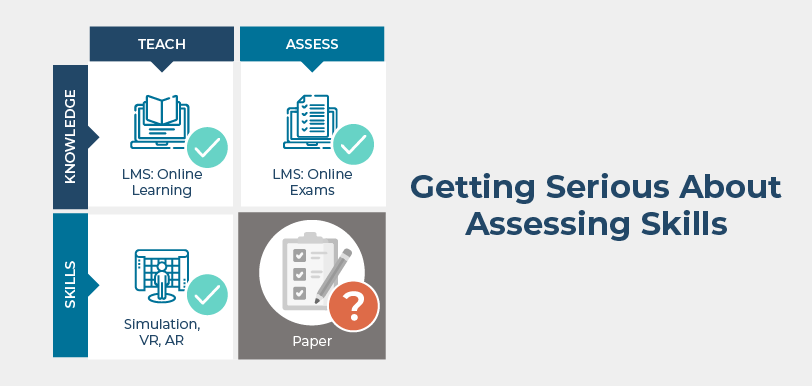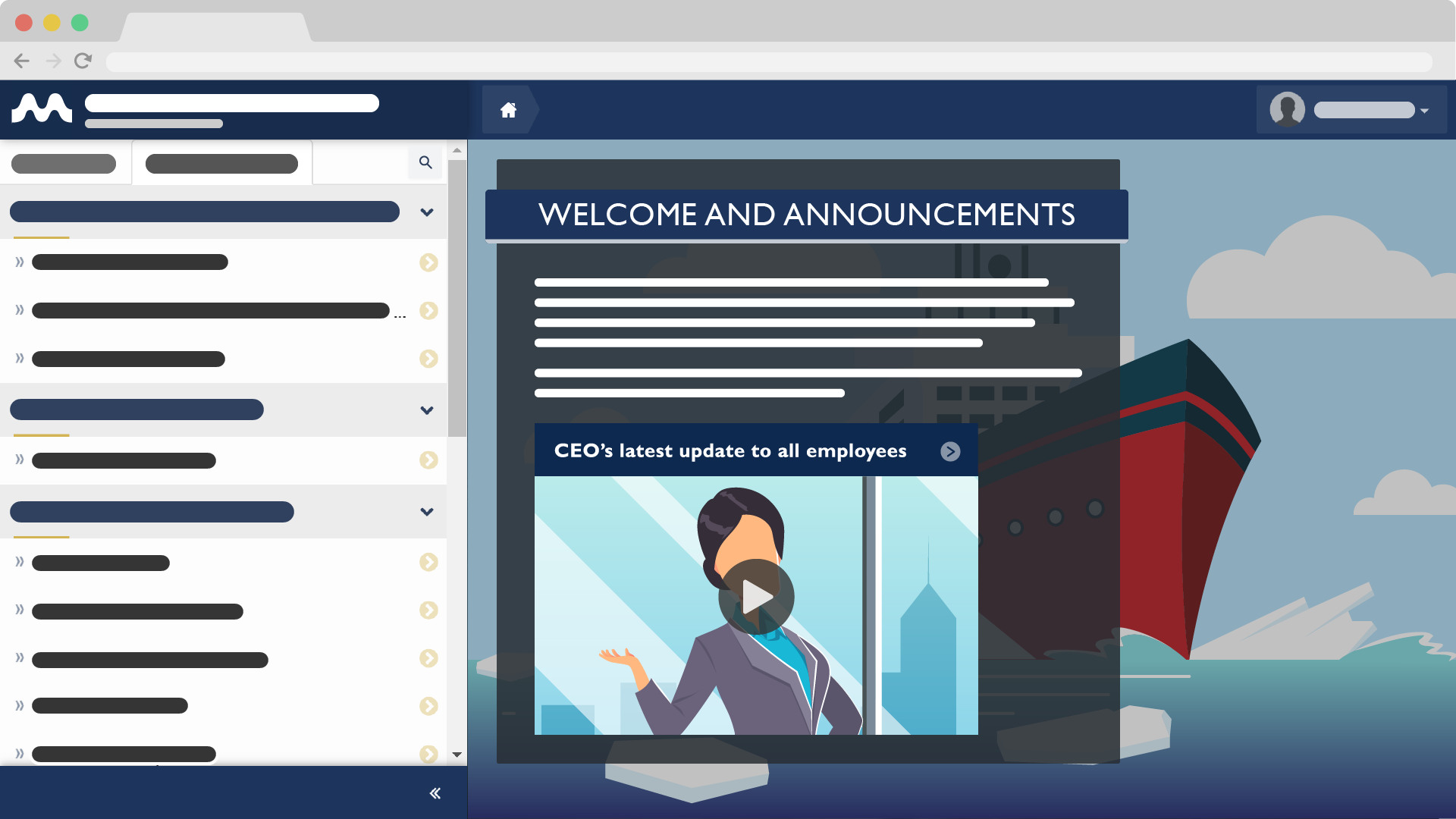“Big Data” and What It Will Mean for Maritime Training
Aug 3, 2017 Murray Goldberg 0 Big Data, Maritime TrainingIntroduction
You’ve most likely heard of the term “Big Data” before. And if you haven’t, you’ll likely be hearing more and more about it soon.
Big data, although a relatively recent term, is already providing insights into all manner of human interaction. Insights which include how people learn and how we train them. Its potential is unparalleled in history. My belief is that big data could be the single largest driver of training improvement since learning began.
My favourite quote about the potential of big data is:
“At IBM, big data is about the art of the possible.”
– Four Vendor Views on Big Data and Big Data Analytics: IBM
Deriving insights from big data is akin to an art – and like most art, there are few limits or boundaries.
So what is big data, why am I talking about it here, and how does it have the potential to vastly improve maritime training?
Big Data – What is it?
The term “Big Data” itself provides some insight into what it is. However, big data is not only about the data itself. It is also about how computers have advanced, in speed and capacity, to the point where it can both generate this data and sift through it to derive any hidden conclusions. This is a form of data mining – a term which you may be familiar with.
So, big data is really about:
- Collecting a tremendous amount of often fine-grained information,
- and then telling computers to sift through that mountain of information to find the knowledge we are looking for.
Without big data, these valuable hidden nuggets of information would otherwise be invisible to us.
What Data?
The thing about big data is that it can refer to almost any kind of data. Collectively, we amass a LOT of data every day. By some estimates, of all of the data that exists now in the world, 90% has been created in just the last two years. Even more interesting, our new understanding of the potential for big data is going to cause us to collect more of it. We are just at the very beginning of an exploding phenomenon.
So what kind of data can we collect?
Well – just about everything. Weather data. Video recordings. E-mail interactions. Social network interactions. Web browsing patterns. Purchasing habits. And most interesting to people involved in maritime training – learning experiences, interactions and outcomes.
Anything from trainee grades, to how they navigate through learning materials, to how they perform on simulators, are potential data points. There is hardly a human endeavour in existence that does not leave a rapidly expanding trail of data behind it. Technology is the great enabler in big data.
This tremendous breadth is both frightening and exciting. But putting aside the issues of data ownership and privacy for the moment, I am always reminded of the incredible potential:
Big data is a source of information. And information is at the heart of knowledge. As big data sources grow, the task for researchers is to mine that data in an attempt to understand more about humans, what they do, and how they do it.
This is the “art” part – the “Art of the Possible”, as IBM says.
How Can This Help us in Training?
As I alluded to above, the thing about big data is that we are just at the beginning of it. People are on the constant lookout for sources of big data that we are not yet collecting. Training interactions is a great example.
One of my greatest regrets professionally (and I am not complaining – I actually have very few) is the opportunity I missed with the first company I started, WebCT. The opportunity to anonymously collect data on how students learned.
WebCT built the first widely-used LMS for universities, with roughly 14 million daily users. That’s a lot of learners, doing a lot of learning.
If I had known then what I know now, I would have collected everything: “macro” data such as assignment, exam and course grades, to “micro” data such as how long are students spending learning or answering a test question, etc.
Think of the potential had things been different. We would have had a very deep and wide pool of data from which we could derive insights. What questions might we ask of this data? (The most important thing to realize is that it is not necessary to know all the questions now. Some will occur to us now, and we will think of many others later.) But just to provide some examples :
- We could examine the data in order to try and correlate training outcomes with habits of the individual learner.
For example, it would not be surprising to find that in general, trainees who spend more time training perform better. Or do they? Perhaps we would find other completely unexpected trainee patterns or attributes that are good predictors of training outcomes. They would be very valuable in helping guide the next batch of trainees. - We could look at learning patterns for some particular topic to see if there were any common paths.
We might find that there are a defined learning paths through the content, and that trainees of a particular background who followed one path did much better than those who followed one of the other paths. This could inform how we train the next person who shares that background. - We could reexamine knowledge months or years after the learning occurred – and then correlate them back to how the trainee acquired that knowledge in the first place
This may yield insights into how to improve knowledge retention.
The bottom line is that big data, if we collect it and analyze it correctly, has the potential to let us peer deeply into the (until now) invisible universe of exactly what is successful and what is not in training.
What About Maritime Training?
There are many potential sources of big data in maritime training. The ones that come to mind are simulation training and assessment, online learning, competency management systems, and the recording of vessel operations. Each of these has the opportunity to generate observations about seafarers and their performance.
Simulation training presents a tremendous opportunity to collect reams of data for analysis. As before, put aside for the moment thoughts about privacy issues and data ownership (which must not be ignored), and consider the potential. For example, how can simulators best be used to improve navigation performance:
- How does each particular form of simulation relate to actual performance gains?
- How do the performance gains relate to existing knowledge, experience, or learning taking place via eLearning, or to those recorded in competency management systems?
- What are the most common mistakes, and how are they correlated to events that take place around the mistakes?
- Are performance gains increased with experience? Are they made worse with time since the last related training event? How can this information be used to improve training outcomes?
Big data can give us many of these insights.
These observations and questions also apply to eLearning and actual vessel navigation. And in the case of vessel navigation, we could add real time recordings of weather, equipment, noise, conversations, and so on to determine how each of these impacts performance and safety. And as above, all of this can be correlated to other training experiences, competencies, assessments, knowledge, and experience out at sea.
Imagine how much we could learn about what makes for safe operations. This could give us the ability to target changes in training to operations where they will make the largest impact.
We know there are some tremendously accomplished seafarers, and intuition gives us an idea of what makes them so. Big data has the potential to provide concrete data on what makes them accomplished. It may also give us the tools necessary to make more mariners like them.
As I say, we only have begun to consider the kinds of questions we can ask, and the depth of results that we will derive. We truly are at the beginning of this, but the early potential is starting to come into focus. And now that the spotlight has been shone on big data, its use and the insights derived from it will accelerate rapidly.
Privacy and Data Ownership
No discussion on big data produced by or collected about humans would be complete without a discussion of the privacy and data ownership implications. These are not small issues, but they are not insurmountable. I will leave this topic largely for another discussion (though am happy to write about it if people are interested), but there are precedents for this.
For example, some systems carefully anonymize the data to ensure that it could never be identified as having come from a particular person. It actually turns out that it is difficult to fully anonymize data, so while this is possible, it must be approached carefully.
Other systems collect data, but explicitly ask the person who is the source of that data for permission to do so, indicating exactly what that data will be used for, and who will have access to it. In those cases, the actual data ownership can be retained by the source individual.
As I say, this is an important topic and cannot be ignored. But I will keep the focus of this article on maritime training, and therefore leave this discussion for another time.
Conclusion
Big data is an emerging field made possible by the rapidly increasing ability of computers to collect and analyze huge volumes of data, and by the continually increasing integration of computers in all aspects of our lives. Even though it will be left primarily to education researchers to determine how to best collect, analyse and draw conclusions from big data as it applies to maritime training, this is an area that is sure to affect the work of all maritime trainers increasingly in the near future.
My belief is that big data could easily be the single largest driver of training improvement since learning began – bigger even than the advent of educational technologies.
Thanks for reading, and if you have not already done so, please feel free to click here to sign up to receive notifications of future maritime training articles. Have a great day.
Follow this Blog!
Receive email notifications whenever a new maritime training article is posted. Enter your email address below:
Interested in Marine Learning Systems?
Contact us here to learn how you can upgrade your training delivery and management process to achieve superior safety and crew performance.


